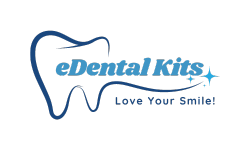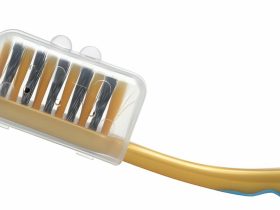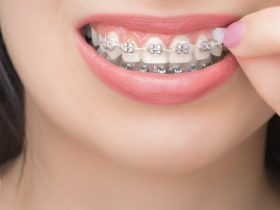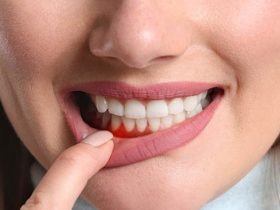
Transform Your Smile: Before and After Dentures
Introduction
Are you contemplating the idea of getting dentures? This decision can be transformative, not only rejuvenating your smile but also revitalizing your ability to eat and speak confidently. Delving into the before and after the experience of acquiring dentures, we aim to equip you with valuable insights to guide your decision-making process. Understanding the preparatory steps and the adjustments needed post-procedure can alleviate concerns and pave the way for a smoother transition. Whether it’s exploring consultation options or delving into post-care routines, this article will serve as a comprehensive resource, empowering you to embark on your denture journey with confidence and assurance.
What are Dentures?
Dentures are removable dental appliances that replace missing teeth and surrounding tissues. They are custom-made to fit your mouth and can be either full or partial, depending on your needs. Full dentures are used when all of your natural teeth are missing, while partial dentures are used to fill in the gaps when you still have some remaining natural teeth.
Dentures are typically made from acrylic, metal, or a combination of both. The teeth on the dentures are designed to look and function like natural teeth, providing you with a natural-looking smile.

Common Reasons for Needing Dentures
Before dentures, you may be experiencing a range of dental issues such as missing teeth, gaps, or severe tooth decay. These issues can not only affect your appearance but also your self-esteem and overall well-being. Having missing teeth can make it difficult to eat certain foods and can also affect your speech.
Additionally, missing teeth can cause your remaining teeth to shift, leading to further dental problems such as gum disease and bite alignment issues. Dentures offer a solution to these problems, providing a natural-looking set of teeth that can be customized to fit your individual needs.
Types of Dentures - Full and Partial
There are two main types of dentures: full and partial. Full dentures are used when all of your natural teeth are missing. They consist of a complete set of upper and lower teeth that are held in place by suction or adhesive. Full dentures can be further classified into conventional dentures and immediate dentures.
Conventional dentures are made after your teeth have been removed and your gum tissue has healed. This usually takes several weeks. On the other hand, immediate dentures are made in advance and can be placed immediately after your teeth are removed. While immediate dentures offer the advantage of not having to go without teeth during the healing period, they may require more adjustments as your gums and bone shrink over time.
Partial dentures, as the name suggests, are used when you still have some remaining natural teeth. They consist of replacement teeth attached to a gum-colored plastic base, which is connected by a metal framework that holds the denture in place. Partial dentures can be removable or fixed, depending on your specific needs and preferences.
The Process of Getting Dentures

Getting dentures is a multi-step process that involves several visits to your dentist. The process typically includes the following steps:
Preparation and Consultation: Before getting dentures, your dentist will conduct a comprehensive examination of your mouth, including taking X-rays and impressions of your teeth and gums. This will help them determine the best course of treatment and create a customized treatment plan for you. During the consultation, you can discuss your expectations and concerns with your dentist and ask any questions you may have.
Tooth Extraction: If you have any remaining natural teeth that need to be extracted, this will be done prior to the denture fitting. Your dentist will ensure that you are comfortable throughout the procedure by using local anesthesia.
Denture Fitting: Once your mouth has healed from any extractions, your dentist will take another set of impressions of your mouth to create your dentures. These impressions are sent to a dental laboratory, where your dentures will be custom-made to fit your mouth perfectly.
Adjustments and Final Fitting: Once your dentures are ready, you will have a final fitting with your dentist. They will make any necessary adjustments to ensure that your dentures fit comfortably and securely. It is common to experience some discomfort or soreness during the initial period of wearing dentures, but your dentist will provide you with instructions on how to alleviate these issues.
Follow-up Appointments: After you receive your dentures, you will need to schedule follow-up appointments with your dentist to ensure that your dentures continue to fit properly. Over time, your mouth may change, and adjustments may be needed to maintain the fit and comfort of your dentures.
Dentures: Preparing for Your Consultation
Before getting dentures, it is essential to go through a preparation and consultation process with your dentist. This step is crucial as it allows your dentist to assess your oral health, discuss your options, and create a personalized treatment plan for you.
During the consultation, your dentist will examine your mouth, take X-rays, and make impressions of your teeth and gums. This information will be used to determine the best type of dentures for you and to ensure a proper fit. You can also use this opportunity to discuss any concerns or questions you may have about the denture process.
It is important to have realistic expectations before getting dentures. Your dentist will explain the potential benefits and limitations of dentures, as well as any alternative treatment options that may be suitable for your specific situation. This will help you make an informed decision and ensure that you are satisfied with the final results.

Denture Care Tips: Adapting with Ease
Once you have dentures, the transformation is remarkable. You can enjoy improved aesthetics, as dentures fill in the gaps and give you a complete smile. They also restore your ability to eat a wide variety of foods, giving you the freedom to enjoy your favorite meals again. Moreover, dentures can enhance your speech, allowing you to communicate clearly and confidently.
However, it is important to note that there is an adjustment period when first wearing dentures. Your mouth and muscles need time to adapt to the presence of the dentures, and it is common to experience some discomfort or soreness during this time. It may also take some practice to get used to speaking and eating with dentures.
To make the adjustment period more comfortable, your dentist will provide you with instructions on how to care for your dentures and alleviate any discomfort. It is crucial to follow these instructions and maintain good oral hygiene to ensure the longevity and proper function of your dentures.
Denture Challenges: Solutions for Comfort
While dentures can greatly improve your quality of life, they do come with some challenges. The most common challenges include
Difficulty Speaking: It may take some time to adjust to speaking with dentures, especially if you have just started wearing them. To improve your speech, practice reading aloud or speaking in front of a mirror. This will help you get used to the feel of the dentures in your mouth and improve your pronunciation.
Discomfort and Soreness: It is normal to experience some discomfort or soreness during the initial period of wearing dentures. Your dentist may recommend using a denture adhesive to help alleviate any discomfort. If the soreness persists or becomes unbearable, it is important to schedule a follow-up appointment with your dentist.
Difficulty Eating: Eating with dentures may feel different at first, but with practice, you can regain your ability to eat a wide variety of foods. Start with soft foods and gradually introduce harder and chewier foods as you become more comfortable with your dentures. Cut your food into smaller pieces and chew slowly to prevent any slippage or discomfort.
Slippage or Loose Fit: Over time, your mouth may change, and your dentures may not fit as securely as they did initially. If you experience any slippage or loose fit, schedule a follow-up appointment with your dentist. They can make the necessary adjustments or recommend a denture adhesive to improve the fit.

Enhanced Quality of Life with Dentures
The benefits of dentures extend beyond just restoring your smile. Here are some of the key benefits of dentures:
Improved Appearance: Dentures fill in the gaps left by missing teeth, giving you a complete smile and enhancing your facial appearance. They are designed to look natural and can greatly improve your self-confidence.
Enhanced Speech: Missing teeth can affect your ability to pronounce certain words properly. Dentures can help restore your speech, allowing you to communicate clearly and confidently.
Restored Chewing Ability: With dentures, you can enjoy a wide variety of foods again. They restore your ability to bite and chew, allowing you to eat comfortably and enjoy your favorite meals.
Prevention of Further Dental Problems: Dentures not only replace missing teeth but also help prevent further dental problems. They provide support to your remaining teeth, preventing them from shifting and causing bite alignment issues. This can help reduce the risk of gum disease, tooth decay, and other oral health issues.
Modern Dental Solutions: Implants & Bridges
While dentures are a popular and effective option for replacing missing teeth, they may not be suitable for everyone. Depending on your specific situation, your dentist may recommend alternative options such as dental implants or bridges.
Dental implants are surgically placed into your jawbone and act as artificial tooth roots. They provide a strong foundation for replacement teeth, allowing them to function and feel like natural teeth. Dental implants offer a permanent solution to missing teeth and can greatly improve your oral health and quality of life.
Bridges, on the other hand, are fixed dental restorations that are used to replace one or more missing teeth. They consist of artificial teeth (pontics) that are held in place by dental crowns attached to the adjacent teeth. Bridges are a non-removable option and can provide excellent aesthetic and functional results.
It is important to consult with your dentist to determine the best option for your specific needs and preferences. They will evaluate your oral health and discuss the pros and cons of each option to help you make an informed decision.
Conclusion
In conclusion, dentures offer a life-changing solution to missing teeth. They can restore your smile, improve your ability to eat and speak and enhance your overall well-being. However, it is important to remember that proper denture care and maintenance are essential for their longevity and optimal function.
Regular cleaning and maintenance of your dentures are important to prevent plaque buildup, bad breath, and other oral health issues. Cleaning your dentures with a soft toothbrush and denture cleaner or mild soap is recommended. It is also important to remove your dentures at night and soak them in a denture-cleaning solution to keep them clean and fresh.
Additionally, it is crucial to schedule regular check-ups with your dentist to ensure that your dentures continue to fit properly and address any issues that may arise. Your dentist will also provide you with guidance on proper oral hygiene and answer any questions you may have regarding denture care.
Frequently Asked Questions
- What steps are involved in preparing for dentures?
- How long does the denture fitting process typically take?
- Will I need to undergo any dental procedures before getting dentures?
- What can I expect during the adjustment period after getting dentures?
- How should I care for my dentures to ensure their longevity?
- Are there any dietary restrictions I need to follow after receiving dentures?
- What should I do if my dentures become loose or uncomfortable?
- How often should I schedule follow-up appointments with my dentist after getting dentures?











Leave a Reply